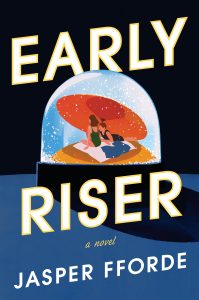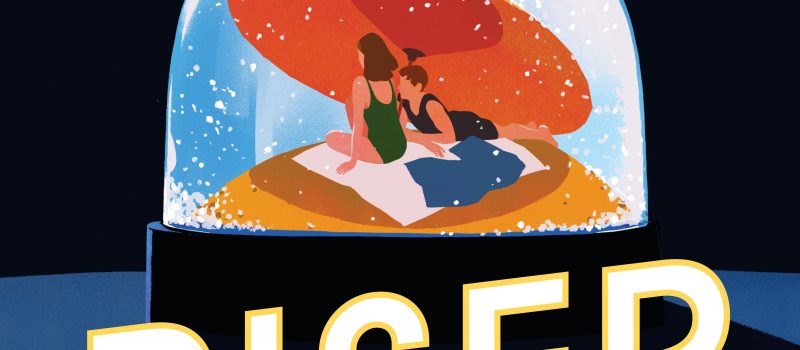Jasper Fforde Guest Post—”Genre, Speculative Fiction and the Cradle of Ideas”
I’ve often struggled over giving my books a genre label, partly because I’m not sure that labels are a great idea, nor, to be honest, is genre—which I’ve often decried as “the measles of the book world”. Sure, genre is useful to publicity and marketing, but it’s of no real use, I contend, to readers, and may in fact narrow reader choices rather than broadening them. I’ve often heard readers declaim that they stick to a certain genre, and that strikes me as a lost opportunity, for there are wonders to be found in any genre.
I think that the accepted definitions of what marks a book as a certain genre are too broad to be useful. SF does not necessarily involve ray-guns and time travel (although it might), fantasy does not have to feature goblins and spells (although it might) and Westerns do not particularly have to feature horses, gun-play and stetsons (although they might).
In the Jasper view of genre, Sirens of Titan is not SF but philosophy, anything by Terry Pratchett is not fantasy but satire, and True Grit is not a Western but a “coming of age/epic revenge/historical fiction”.
I’d hate to think that anyone missed out on Charles Portis’ masterpiece simply because they once read The Oklahoma Kid and thought it was more of the same. True Grit, defined by genre alone, is not a Western.

So where does that leave me and my genre uncertainty? I like to think, to misquote Shakespeare: “That I have supped at the great feast of storytelling and made off with the scraps”. I have never stuck to any particular genre when writing simply because I am not beholden to genre in my reading choices—any more thanI am beholden to musical genre on my iPod— Puccini’s Humming Chorus sits very happily next to “Groove Is In the Heart”, just as Mascagni’s Intermezzo sits happily next to “Pump It”. It’s all good music. Nothing else matters.
When it’s good writing, nothing else matters either.
I like all genres, no, wait, I love all genres and often squange them together in the same book; The Eyre Affair I regard as a station with a lot of different trains—arrive on romance, and leave on alternative history. The thing is, Speculative Fiction—alright, there, I’ve done it, I’ve labelled myself —is a cradle, a nursery of fresh ideas. It’s the sandbox of the literary world, the place where new concepts are born, where the cross-fertilization of worn tropes give rise to exciting new possibilities. We take ideas, we experiment, we run with them, we have fun. Some are dead ends, but others grow and bare fruit—often in other writer’s heads. For yes, Speculative Fiction is a gregarious beast, and engages freely with other authors. The themes and ideas that I and my fellow speculators write now may lead onto much better books by more talented authors ten years from now.
Early Riser continues the speculative vein I began mining in Shades of Grey[1], and by inverting norms, by experimenting with a species of human that hibernates, I can explore other themes: mankind in decline, high mortality, aggressive repopulation, what it takes to find strength in your own weaknesses, and whether love truly is universal, whomever or whatever you might be.
I really enjoyed writing it, and I hope the pleasure is reflected in your reading—and that somewhere within the pages there is ample food for thought, and concepts that will live on beyond the covers of the book.
Oh, and if you’re not doing it, break out of your genre writing pool. There are treasures to be found everywhere.
[1] My Shades of Grey, not the other one, which has fifty more.

Jasper Fforde gave up his career in the film industry when his novel The Eyre Affair debuted on the New York Times bestseller list in 2002. He is the author of the Thursday Next series, the Nursery Crimes series, and Shades of Grey. His newest novel, Early Riser, is in stores now. He lives and works in Wales.





